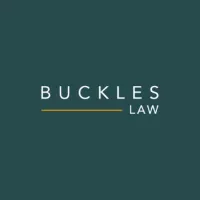- within Employment and HR topic(s)
- with readers working within the Business & Consumer Services industries
- within Employment and HR topic(s)
- with Senior Company Executives, HR and Inhouse Counsel
- in United States
- with readers working within the Environment & Waste Management and Securities & Investment industries
A recent Employment Tribunal decision has cast new light on employers' responsibilities when staff feel harassed by external speakers at workplace events. In Newman v Commissioner of Police of the Metropolis, the tribunal was asked to consider whether an employee's dignity had been violated by comments made during a staff network event and, crucially, whether the employer could be held accountable for that experience.
Ms Newman, a trainee detective with the Metropolitan Police, attended an event hosted by the force's LGBT+ staff network to mark the Trans Day of Visibility. Although the session was described as inclusive and informative, one speaker, trans activist Eva Echo, made statements about gender-critical beliefs that Ms Newman found deeply offensive. Remarks described such views as "cult-like" and "twisted," and were met with applause and audience approval. No one present challenged the comments, and Ms Newman, who had tuned in during her personal time, later lodged a formal complaint.
What the tribunal had to consider
Ms Newman argued that the Metropolitan Police had created a hostile environment by platforming a speaker known for holding adversarial views, and by failing to intervene when comments crossed the line. She also raised concerns about institutional impartiality, questioning whether similar remarks about other protected groups, such as atheists or gay people, would have been tolerated in the same way.
The tribunal accepted that the speaker had expressed strongly critical views about people holding gender-critical beliefs, and that no one from the Met had attempted to challenge them. However, it stopped short of finding liability. Under the Equality Act 2010, an employer is not automatically responsible for what an external speaker says unless it can be shown that the employer either endorsed those views or failed to act out of discriminatory motivation.
Here, the tribunal focused on the Met's inaction, rather than the speaker's words. It found that the officers and organisers had not set out to harass or exclude people with gender-critical beliefs, and that their failure to react stemmed from oversight, not hostility.
Did the comments amount to harassment?
Ms Newman's claim turned on whether the speaker's remarks, and the Met's failure to intervene, created an environment that was hostile or degrading to her. The tribunal accepted that she had found the event upsetting – she'd made notes, sent messages, and clearly expressed distress. But that alone wasn't enough.
The test for harassment includes an objective component. The tribunal had to ask: was it reasonable for Ms Newman to feel this way, given the circumstances? On this point, it said no. Ms Newman had knowingly attended a partisan event, dealing with a contested social issue. The speaker was entitled to express views that might shock or offend. And the audience, including Ms Newman herself, had the right to hear those views in order to understand a particular lived experience.
The tribunal concluded that while the speech may have been uncomfortable, it didn't breach the legal threshold for unlawful harassment. There was no evidence that the Met's officers condoned or endorsed the comments, or that their silence amounted to approval.
Where the employer dodged liability
While the Met avoided liability this time, the tribunal didn't give them a free pass. It noted that the staff network had significant autonomy, and that there was no policy requiring speaker vetting or content oversight. The speaker had not been booked by the Met directly, nor was the event run as formal police training. This gave the employer enough distance to avoid being seen as legally responsible for the content.
Even so, the tribunal made clear that if the circumstances had been different, e.g., if the speaker had been commissioned to deliver training, or had been acting with delegated authority, the Met might have been liable. Similarly, if the event had been more formally integrated into police operations, the balance might have tipped.
Why this matters for other employers
Although the legal bar for harassment remains high, this case is a timely warning for any organisation that facilitates events involving controversial topics or external speakers. Staff networks and diversity forums play a valuable role in many workplaces, but when given free rein, especially without oversight, they can expose the business to reputational and legal risk.
Employers should also take note of the tribunal's comments on process. Ms Newman struggled to find an appropriate internal route to raise her concerns. Her grievance was rejected as falling outside the usual frameworks, and she was told the issue didn't fit the organisation's model of "learning and resolution". The tribunal was critical of this gap, even though it did not ultimately uphold her claim. Notably, it observed that the Met had since changed its approach to accommodating gender-critical beliefs and vetting speakers, changes likely prompted by this litigation.
What's coming down the line
This case lands against the backdrop of impending legislative reform. Under the Employment Rights Bill from 2026, new statutory provisions are expected to reintroduce employer liability for harassment by third parties. That includes visitors, customers, agency workers and, as is relevant here, guest speakers. Employers will only be able to defend such claims if they can show they took all reasonable steps to prevent the harassment from occurring.
That is a high standard. In the context of speaker events, it means undertaking due diligence, ensuring that speakers are aware of their responsibilities under equality law, and putting in place safeguards for managing disagreement. Businesses will need to show that they took a measured and anticipatory approach, not simply that they responded to complaints afterwards.
The tribunal in Newman acknowledged that the law requires more than subjective offence. But it also signalled that employers cannot rely on passivity or process gaps as a shield. The more the employer facilitates, promotes, or visibly supports an event, the closer it comes to institutional endorsement of what is said there.
A final note for employers
Organisations should not abandon debate or avoid inviting external voices for fear of liability. But they must recognise that hosting external speakers, particularly on socially contested subjects, carries responsibilities. Autonomy for staff networks should not mean abdication of oversight. If offensive or discriminatory views are expressed, and there is no policy or preparation in place, it may be hard to argue that the business did everything it could to prevent harm.
The Newman case may not have set new legal precedent, but it has sharpened the focus on how easily third-party speech can bring employers into the legal firing line, especially when the lines of accountability are blurred.
The content of this article is intended to provide a general guide to the subject matter. Specialist advice should be sought about your specific circumstances.


